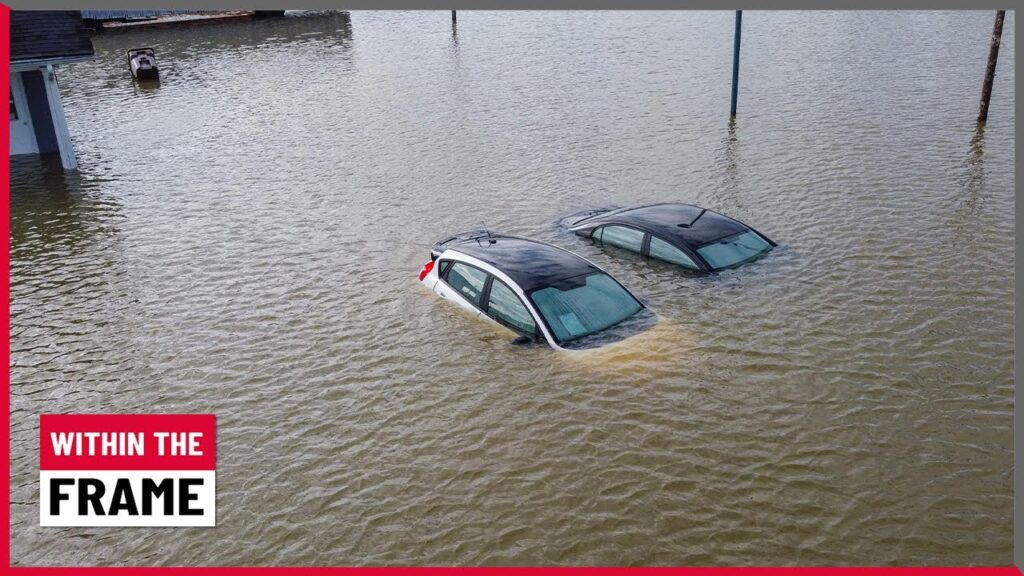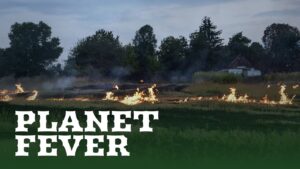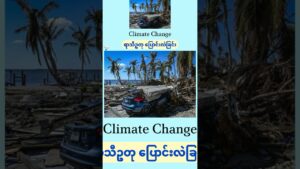
전 세계 이상기후 현주소와 기후위기 대응 방안은?
Welcome to Within The Frame, where we bring the most pressing issues across the globe into focus. I’m Kim Mok-yeon.
This week, South Korea is celebrating Climate Change Week, dedicated to raising awareness about the impacts of climate change and promoting actions towards carbon neutrality and climate adaptation.
As the nation grapples with more unpredictable weather patterns — such as unseasonal snowfalls in April and heavy rainfall — the urgency for climate action has never been more apparent.
With a focus on both immediate and long-term solutions, South Korea has rolled out initiatives like the “Carbon-Neutral Points System” and “Climate Insurance” to protect vulnerable groups from the growing effects of climate-related disasters.
But these are just the beginning.
To discuss the broader picture today, joining us are two distinguished experts.
We are joined by Chung Suh-yong, Professor of International Studies at Korea University. Welcome.
We also connect to Aiguo Dai, Distinguished Professor of Atmospheric & Environmental Sciences at the University of Albany, SUNY. Great to have you.
(CHUNG) 1. This week marks South Korea’s Climate Change Week, a pivotal moment to highlight the country’s commitment to carbon neutrality. Given the recent unusual weather patterns — such as snowfall in April and intense rainfall across the nation — could you elaborate on the critical need for heightened climate awareness in South Korea?
(DAI) 2. Professor Dai, as a global expert on atmospheric and environmental patterns, you’ve observed devastating floods in Bolivia and early heatwaves in India and Pakistan. Given these events, how do you foresee the frequency of such extreme weather phenomena increasing, and what are the key global drivers behind these shifts?
(DAI) 3. Agriculture, as we know, is one of the most vulnerable sectors to the impacts of climate change, with unpredictable weather significantly affecting crop yields. Could you share some of the innovative global solutions that are being implemented to help farmers adapt, and what lessons could be applied to other regions facing similar challenges?
(CHUNG) 4. In response to growing climate risks, the Korean government has introduced the “Climate Insurance” system to support vulnerable communities impacted by extreme weather events. What is your assessment of this approach, and how effective do you think it could be in mitigating the damage from frequent climate-related disasters in South Korea?
(CHUNG) 5. Alongside this, South Korea has rolled out initiatives like the “Carbon-Neutral Points System” to encourage public participation in climate action. How would you evaluate the effectiveness of these programs in fostering widespread engagement, and what further measures could be taken to increase public participation in the country’s climate efforts?
(DAI) 6. Many countries, including South Korea, are striving to achieve carbon neutrality. From your perspective, what role does international cooperation play in achieving these ambitious global climate targets, and how can nations collaborate more effectively to share knowledge and resources in managing climate-related risks?
(CHUNG) 7. As one of the world’s leading industrial nations, South Korea faces the challenge of balancing its rapid industrial growth with the urgent need to reduce carbon emissions. In your view, which sectors should South Korea prioritize in this transition, and what are the key strategies for balancing economic growth with environmental responsibility?
(DAI) 8. Looking at international climate agreements such as the Paris Agreement, how would you evaluate the current progress in their implementation, particularly in light of the increasing frequency and severity of climate disasters worldwide? What more needs to be done on a global scale to ensure these commitments translate into meaningful action?
(DAI) 9. From a global standpoint, what do you believe are the most effective strategies to mitigate the impacts of climate change? Are there specific actions that developing nations should focus on to reduce their vulnerability to climate-related risks, while still promoting sustainable development?
(CHUNG) 10. Finally, Professor Chung, in what areas do you believe South Korea can lead the global fight against climate change? And as individuals, what steps can we take to contribute meaningfully to addressing the climate crisis?
This wraps up our program for tonight
#Global #Weather #Climate #Climate_change #Climate_insurance #Snowfall #Rainfall #ChungSuhyong #AiguoDai #세계 #날씨 #기후 #이상_기후 #기후_변화 #기후_위기 #대응 #Arirang_News #아리랑뉴스
📣 Facebook : https://www.facebook.com/arirangtvnews
📣 Twitter : https://twitter.com/arirangtvnews
📣 Homepage : https://v2.arirang.com/
2025-04-24, 20:30 (KST)
source




Torrential rains that we are seeing across Europe and across Asia along with record cold long Winters that have flooded California from north to south are all caused by cold fronts from it steadily increasing polar vortex disruption that has nothing to do with 400 parts per million of a trace gas more rare than Xenon in the atmosphere.
1,700 Americans die EVERY day from Medical malpractice, deadly Pharma interactions and overdoses, and from Hospice elder abuse. EVERY DAY!
Now what did you want to tell me about your buIIshit +1.5°C in 275 years 'climate change' anti-Human Kleptocrat taxation scheme!?